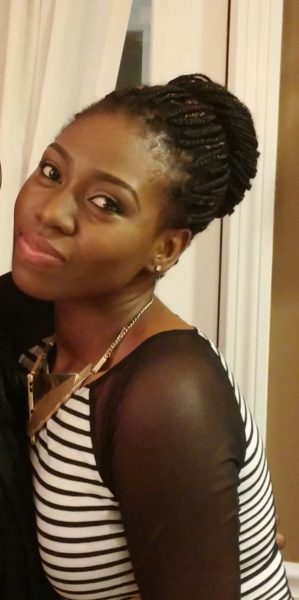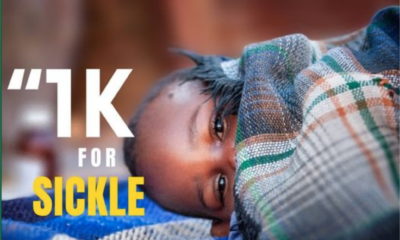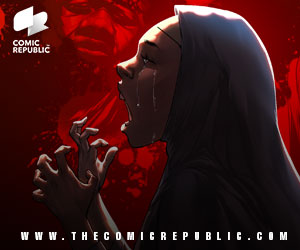Features
Ibi Ayeni: Bringing Awareness to Sickle Cell Disease
 “Hey, did you know (insert person’s name or gender here) is a sickler?”
“Hey, did you know (insert person’s name or gender here) is a sickler?”
How many times have we heard that conversation about someone we know or knew? Yeah, it seems to be a recurring experience that is common in a society like ours. I have always wondered who started it and when the term “sickler” was coined – though I do not remember specifically the first time I heard that term, but as far back as I can remember, I knew there was a negative connotation to it. If you were a “sickler” you were a walking “death” sentence. Everyone had sympathy for your family – not even you the “sickler” but the parents for having such an unfortunate “child-tuation”.
I did not quite understood what it meant to be a sickler; I had never known anyone in particular who was one. I found out years later after learning I had Sickle Cell Anemia, a variation of Sickle Cell Disease (SCD).
Even though we may not realize it, “sickler” is a negative, derogatory and condescending term that we MUST stop using – it does more harm than good for our society. We have sickle cell warriors not able to come out to friends and others about their struggle with sickle cell due to lack of compassion from society. Following experiencing the worst pain imaginable, my new doctor explained to us that what I was experiencing was a pain crisis episode. I, at the age of 13 first thought to myself after; “I’m a sickler”? How? Why? No!!??! OMG nobody can know!
Imagine at that age, to be consumed by being stigmatized forever and isolated from people; my friends oh my goodness, what will they think of me? Would they still want to be my friends? My church members cannot know either, they will want to have deliverance session because I have the “sickler” demon, my life is OVER.
Yup! That was literally my thought process.So I went my whole life without talking to people about my chronic illness. Finding out you have sickle cell is one thing, identifying with being a “sickler” was another. Fortunately what I understood to be a “sickler” never quite described me or any of the other people I later met who also deal with Sickle Cell. I call them warriors – they fight fiercely every single day to live as normal as possible while dealing with the disease – funny how I had known about the term even before knowing anything about the disease; and I’m sure that’s not peculiar to just me.
Sickle Cell Disease (SCD) is such a complex genetic disease that I am quite sure there are still people out there, educated even, who truly do not understand what it means to call someone a “sickler”. Sickle Cell Disease is far more complex and the term “sickler” does not begin to describe the first discovered genetic blood disorder. Sickle Cell Disease affects the hemoglobin on red blood cells, which is responsible for carrying oxygen into the cells, tissues and organs. This causes the red blood cells to sickle or form a “C” shape, thereby inhibiting the ability of the red blood cells to transport through the veins to deliver oxygen to the body.
I find this word to be a wedge between those living with the disease and everyone else, it has hindered the connection to proper understand the struggle caused by the disease. It is a disconnect from things like SCD’s genetics components, its exhibition, its forms, heck the different types of the disease… oh, wait, don’t tell me you don’t know there are different variations of Sickle Cell Disease or that the percentage of sickled cells in the body differs from person to person.
I do not know how many times I have heard “but you don’t look it”, the reality is life experiences, struggles and pain do not show on our faces, and this is especially true for me and may warriors. Like many people dealing with this or another form of chronic illness, I have missed school for weeks, had schoolwork sent to me at the hospital and would go back to school like nothing happened, that was my routine. I have gone about my life with Sickle Cell Disease setbacks here and there, but from a young age I felt like every other kid you knew. I lived a normal life because my family early on determined to make me feel as normal as other children I knew and met. I went off to University – matter of fact I wanted to go as far as possible away from home but it just so happened I ended up an hour away from home, but I very independent.
While in college, I traveled a lot; mostly by driving mainly because I was a broke student but also one that loved to drive. I was a little daredevil and was up for anything as long as it was legal. I later graduated with my Bachelors, and went off to live and work in the city, but throughout I can count how many people knew about my Sickle Cell struggles, and I was perfectly fine with that until September 2014 when I became really involved in raising awareness for SCD.
September is SCD awareness month in the United States. I have always supported and spoke about Sickle Cell Disease but never shared my connection with it. A lot of people thought it was an interest of mine or that I knew people who suffered from the disease. This time though was much different because I went a step further – a step that birthed the public announcement of my blog about Sickle Cell.
Since then, I have made it my mission to bring awareness and education to the public, to pursue federal policies that support the effort to reduce the cases of Sickle Cell and promotes the health of SCD warriors – in addition to offering mentorship to young Sickle Cell warriors who strive daily to live a full life while living with a debilitating disease like as Sickle Cell.
The core focus of my movement is to focus on the part of our population with Sickle Cell Trait, commonly known as “AS” genotype; they make up about 20-30% of Nigeria’s population. This makes it imperative to combat Sickle Cell Disease in Nigeria. We have the highest cases of Sickle Cell in the world and somehow the disease gets insignificant awareness and attention from our government and the general public.
My hope is that my “you don’t look it” face brings the much needed attention to Sickle Cell. There is no reason why in 2015 we continue to have high numbers of babies with Sickle Cell Disease. We have to close the gap between the general population, the disease and the SCD population – SCD trait is inclusive because we have people who either do not know their genotype or are not educated enough to understand the impact their genotype have on their future.
In the spirit of celebrating World Sickle Cell Day, I encourage you to join the movement to bring a much needed awareness and education to Sickle Cell.
Happy WSCD!





















